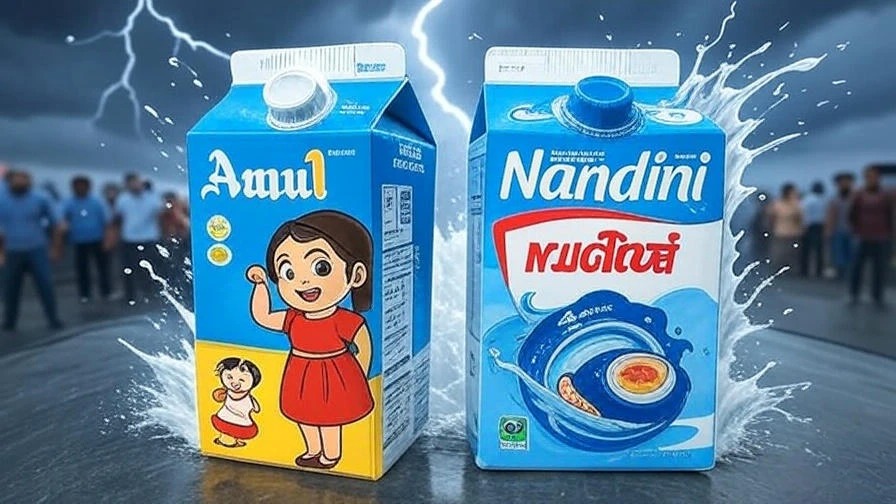The bustling corridors of Bengaluru Metro are about to witness something unprecedented – a dairy war that goes far beyond simple product placement. When Amul announced its plans to set up kiosks at ten key metro stations, it didn’t just signal a business expansion; it reignited one of India’s most passionate regional rivalries in the dairy sector.

The Strategic Chess Move
The Bengaluru Metro Rail Corporation Limited (BMRCL) made a calculated decision when it welcomed Amul kiosks to high-traffic stations including Indiranagar, Baiyappanahalli, Trinity, Majestic, and Jayanagar. From a pure business lens, this move makes perfect sense. With metro fares recently hiked by up to 71%, alternative revenue streams have become critical for BMRCL’s financial sustainability.
These Amul outlets will offer everything from fresh milk and ice cream to instant food items and organic products – essentially creating a comprehensive convenience store experience for daily commuters. For time-pressed Bengaluru residents juggling work and long commutes, having access to quality dairy products and snacks right at metro stations represents genuine value addition.
The revenue diversification strategy is textbook smart. Urban transit systems worldwide rely heavily on non-fare revenue through retail partnerships, advertising, and commercial spaces. BMRCL is simply following this proven playbook, partnering with a brand that commands national recognition and trust.
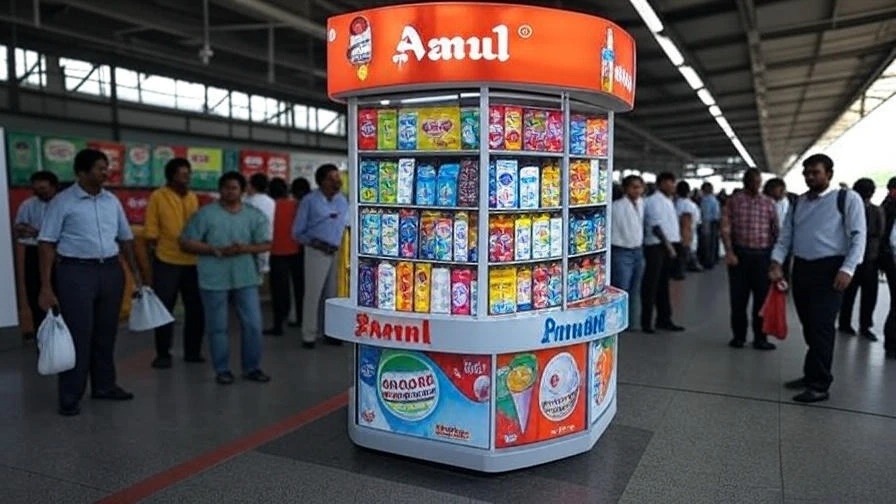
The Regional Pride Factor
However, beneath this business rationale lies a complex web of regional sensitivities. Karnataka Milk Federation’s ‘Nandini’ brand isn’t just another dairy cooperative – it’s deeply woven into the state’s agricultural identity and farmer livelihoods. As India’s second-largest dairy cooperative, KMF has built its reputation on supporting local farmers while maintaining product quality that rivals any national brand.
The political dimensions became evident during the 2023 Karnataka Assembly elections when Congress leaders accused the then BJP government of favoring Gujarat-based Amul over homegrown Nandini. This wasn’t merely election rhetoric; it reflected genuine concerns about economic priorities and regional representation.
KMF’s strong objection to Amul’s entry stems from a fundamental question: why invite external competition when Karnataka’s dairy sector is not just self-sufficient but actually exports surplus production to other states? Their argument carries weight – the state doesn’t have a supply gap that requires filling from outside.
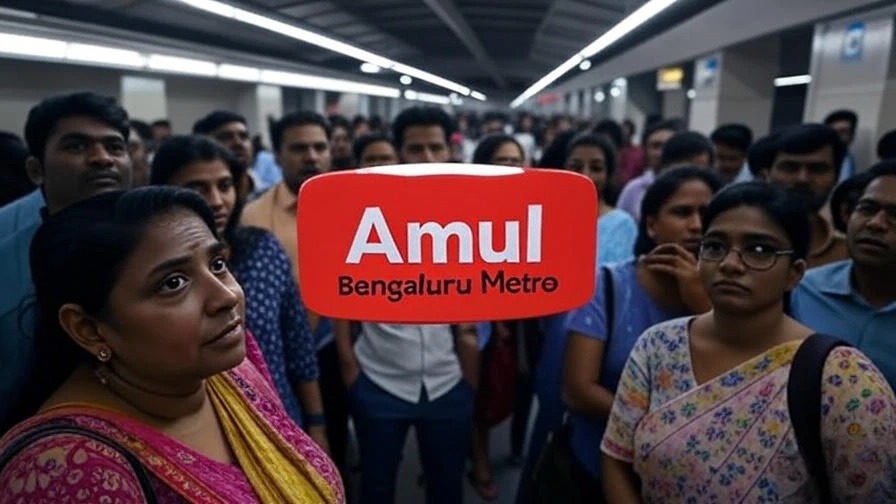
The Unwritten Rules Are Changing
Historically, Amul and KMF maintained an informal understanding, avoiding direct liquid milk sales in each other’s home territories while competing freely in neutral markets like Mumbai, Chennai, and Nagpur. This gentleman’s agreement appears to be dissolving, with both cooperatives now adopting more aggressive expansion strategies.
KMF hasn’t remained passive, actively expanding into Delhi, Uttar Pradesh, and Rajasthan – effectively taking the competition to Amul’s broader operational territories. This escalation suggests we’re witnessing a fundamental shift in how India’s largest dairy cooperatives view territorial boundaries.

Consumer Impact: The Silver Lining
From a consumer perspective, increased competition typically delivers better outcomes. Bengaluru commuters will benefit from:
Enhanced Convenience: Access to quality dairy products during daily commutes eliminates the need for separate shopping trips.
Product Variety: Amul’s extensive range, from traditional dairy to innovative snacks, provides more choices.
Potential Price Benefits: Competition could lead to better pricing and promotional offers, though this remains to be seen.
Quality Assurance: Both Amul and Nandini maintain high quality standards, ensuring consumers get reliable products regardless of their choice.
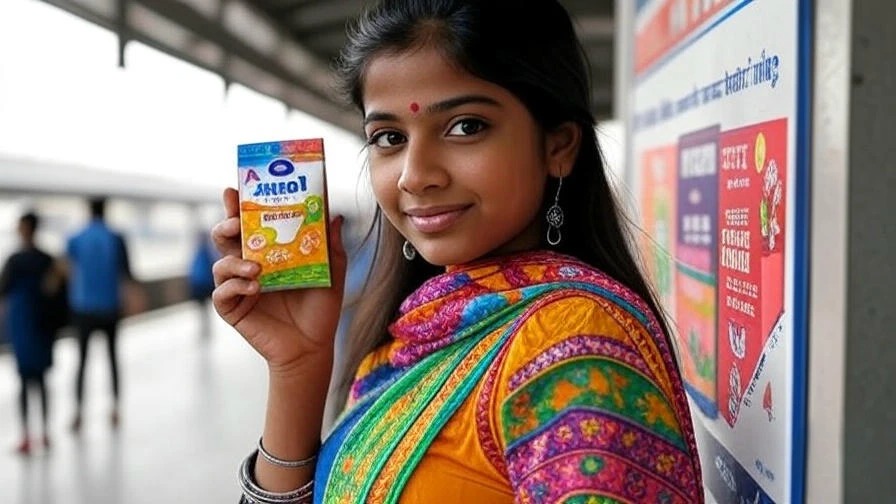
The Challenges Ahead
The expansion isn’t without risks and concerns:
Local Farmer Impact: If Amul gains significant market share, it could potentially affect KMF’s procurement from local farmers, impacting rural livelihoods.
Market Saturation: Karnataka’s dairy market might not have room for significant additional capacity without affecting existing players.
Supply Chain Complexity: Managing fresh dairy product distribution through metro kiosks presents logistical challenges that could affect product quality or pricing.
Political Sensitivity: The expansion could remain a politically charged issue, potentially affecting business operations during election cycles.

Industry Implications
This development signals broader changes in India’s cooperative sector. Traditional regional boundaries are becoming less relevant as cooperatives seek growth in an increasingly competitive market. The success or failure of Amul’s metro strategy could influence similar expansions by other state cooperatives across India.
The dairy sector’s evolution reflects India’s broader economic transformation – from regionally protected markets to more open, competitive environments. While this creates opportunities for innovation and efficiency, it also raises questions about balancing growth with local economic interests.

The Road Ahead
As Bengaluru commuters soon encounter Amul kiosks alongside existing Nandini options, the market will ultimately decide the winner. Success will depend on factors beyond brand loyalty – pricing, convenience, product freshness, and service quality will all play crucial roles.
This metro milk war represents more than just corporate competition; it’s a case study in how regional identity, economic development, and market forces intersect in modern India. The outcome will be closely watched by policymakers, industry analysts, and other state cooperatives considering similar expansions.
For now, Bengaluru’s metro stations are set to become an interesting battleground where commuters will vote with their wallets, potentially reshaping Karnataka’s dairy landscape in the process.
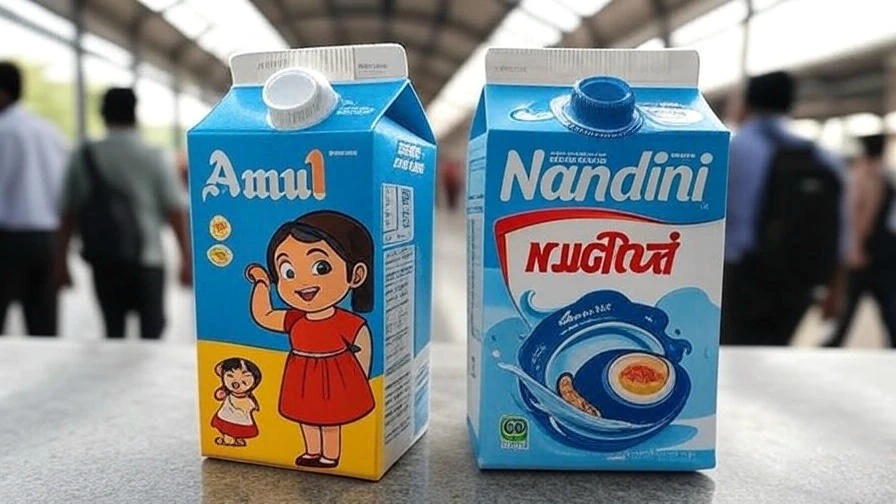
Disclaimer: This analysis is based on publicly available information and market developments. It does not constitute investment advice or recommendations to purchase any products or services. The views expressed are for informational purposes only. Readers should conduct independent research and consult appropriate advisors before making any business or investment decisions. The dairy cooperative sector involves various economic and political factors that can impact market dynamics unpredictably.
